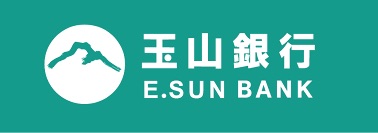E.SUN FHC is unique in the banking industry. With no affiliation with family nor government agency, E.SUN is a banker’s bank - a bank that is owned by employees, and managed for customers. All employees can sing the corporate anthem by heart, and almost every employee owns shares of the company. These practices might seem unconventional, but they represent the spirits of a sustainable succession system that makes E.SUN built to last.

1,300 middle managers – the “Hope Engineers”
E.SUN established a mechanism of selecting competent successors. Now E.SUN has a talent pool of 1,300 middle managers, or called “Hope Engineers” of E.SUN, who were carefully selected among 8,000 employees. From the pool of 1,300 middle managers, 300 senior managers were chosen, then subsequently 20 elites were designated as senior executive vice presidents. Through the approach, a sustainable talent reserve and orderly career ladder was built. This talent pool is directly tracked and managed by President and Chief Human Resources Officer.
Mr. Ji-Ren Lee, professor of the College of Management, National Taiwan University, pointed out, “Succession relies on a well-designed system. The 0.2% top management come from the pool of managers that makes up 2% of the employee count, while the 2% come from the group of middle managers who make up 20% employees of the company. Succession does not rely on an individual, but a team of leaders and a sustainable system.”
Ji-Ren Lee gave an example to illustrate his point. Every year, 30 middle managers are selected to join an overseas tour led by E.SUN’s founder Yung-Jen Huang. They would travel across Europe to visit historic banks, museums, art galleries or taste local gourmet. Through the journey, participants could broaden their horizons and learn what constitutes a good bank. Moreover, they could cultivate a heightened sensitivity towards different cultures through travel, while build up a sense of solidarity towards the company.
“What an honor it is to be handpicked by the bank’s founder to join the trip. This privilege would also inspire other colleagues to work harder to earn the honor in the future,” Ji-Ren Lee said. For E.SUN, the trip is also a chance to observe the potential successors and to learn more about each of their family background, personality, and values.
For Ji-Ren Lee, he thinks Mr. Yung-Jen Huang just embodies his imagination of a true banker, one who has heart and soul for work, impeccable taste for life, and a strong sense of identity with the bank.
How strong does this sense of identity have to be for a potential successor?
Joseph Huang, CEO & President of E.SUN FHC, told an interesting story about his own experience with a foreign shareholder. When he visited a long-term institutional shareholder in the UK, the investor did not ask the CEO about financial or business performance of the bank. Instead, he asked Joseph Huang to sing the corporate anthem.
“The investor asked me”, said Huang, “I heard that your founder compose a corporate anthem. Can you sing it for me?” Joseph Huang recounted the story. He also elaborated lyrics of the song to the shareholder and told him how the song conveys the vision and ideal of E.SUN.
Chen-En Ko, Emeritus Professor of the Department of Accounting, National Taiwan University, was very impressed by the story and interpreted it in his way. He thinks that many companies claim that their staffs have a strong sense of identity and loyalty to the company. However, if their staffs cannot even know the corporate anthem by heart, that kind of claim is hardly convincing.
A good succession planning is reliant on employee loyalty, and this in turn creates stability for the company. To inculcate a strong sense of loyalty within every employee, however, words and rules simply don’t suffice. The crux of it lies in making each employee feel like they are part of a bigger family.
High engagement results from high involvement
The first instance of how E.SUN builds up high engagement is to allow employee to be a part of important decisions concerning their future.
For example, M&A deals are generally considered confidential by most companies. Usually a handful C-suite executives would participate in the discussion. However, E.SUN allowed its middle managers to attend such meetings. The lawyers and accountants involved in the deal discussion were very surprised by the attendance of 70 to 80 employees. The lawyers would then remind E.SUN of issues about confidentiality. However, CEO Joseph Huang has full, unwavering confidence to his employees. “Confidentiality is duty of a banker”, said Huang. “Our employees are fully aware of their duties”.
He explained reasons why involving middle managers in such meetings. “a mergers and acquisitions will not only make an impact on the leaders of the bank, but also on the middle managers. The middle managers will execute the M&A and the implication will last for the next 10 or 20 years. They are the ones who are affected by the transaction, thus are the key stakeholders of these matters.”
The second instance is to encourage employees to become shareholders.
According to Professor Lee’s observation, compared with its banking peers, E.SUN’s junior staffs are better paid. On the other hand, salary level of senior managers at E.SUN is generally lower than the peer average. Nevertheless, turnover rate of senior managers is surprisingly low. Answer to the paradox can be found in E.SUN’s shareholder composition. Unlike other banks or financial holding companies, E.SUN has the most senior managers who are also shareholders of E.SUN. Many senior managers of the bank hold more than 1,000 lots (thousand shares) of E.SUN’s shares. “E.SUN’s employee are the owners of the bank,” Ji-Ren Lee pointed out.
It is not an easy task for a bank to allow its employees to become major shareholders. It is something that requires consistent and long-term dedication.
When Mr. Yung-Jen Huang founded E.SUN bank, he stated his vision clearly to potential investors that E.SUN will be a bank managed by professional bankers. E.SUN puts its employees first. This is why the bank created a culture to promote employee’s stock ownership and encourage employees to become owners of E.SUN.
Foreign investors supportive to high employee shareholding rate
Employees of E.SUN receive bonuses twice a year. Besides the annual bonus, employees also can receive bonus in the form of shares. By this way, employees can participate in harvesting the fruits of their hard work. Each employee receives 2 or 3 lots (thousand shares) per year. Along with the shares employees might purchase in the market on their own, many E.SUN employees hold more than one hundred lots shares. This investment also becomes a second source of funds for retirement. Secondly, employees of E.SUN can voluntarily enroll in the employee stock ownership trust program by deducting certain amount of their salary to buy E.SUN shares.
Currently, E.SUN’s employees and their families hold more than 20% of E.SUN’s stake.
CSR – the unchanged insistence of E.SUN
In the early years of E.SUN’s history, many shareholders had doubts on the social responsibilities that E.SUN practiced. Professor Chen-En Ko remembered questions often raised by shareholders, “why the bank does not focus solely on generating more profits? does corporate social responsibility really pay off?”. Professor Ko explained the bank’s philosophy. “E.SUN takes good care of its employees, who will be motivated to offer better services to the bank’s clients in turn,” said Ko. “This is especially important in the banking industry in which service is key. Eventually, these will translate back to good sales figures and profits for the bank, meaning that shareholders are actually the greatest beneficiaries.”
E.SUN’s approach also has earned much recognition from foreign investors. According to Chen-En Ko, many foreign investors, especially those in Europe, choose to invest in companies who are able to generate long-term and stable profits, and those who value CSR at the same time. In other words, besides profitability, CSR is also a key determinant of foreign investments — the more a company engages in CSR, the more foreign investments it receives.
High employee engagement, high employee shareholding rate, and solid foreign investments become the three pillars that have been supporting E.SUN’s sustainable development.
These three pillars constitute a well-established system that allows E.SUN to maintain its sustainability. Employees are happy to be shareholders of the bank. Foreign institutional investors also highly approve its business philosophy.
Talents are the most precious asset of a bank. E.SUN can always maintain competitive in Taiwan banking industry because its succession plan can ensure ample supply of talents and key successors. E.SUN’s talents of different generations will enable the bank to prepare for challenges of the future. E.SUN has proven that it is possible for a Taiwanese bank to, albeit without the support of family wealth or business consortiums, compete at the international level. E.SUN is truly a banker’s bank.
Sponsored By:
